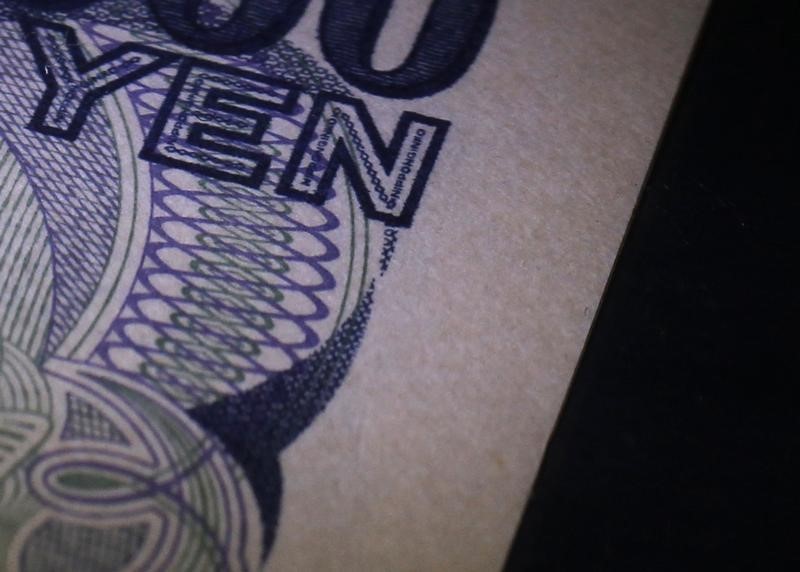* Yen steadies after hitting 17-month high vs dollar
* Japan PM: countries should avoid "arbitrary intervention"
* Govt spokesman says watching market closely
* Dollar gains against euro before Fed minutes (Updates prices, adds details and quotes)
By Patrick Graham
LONDON, April 6 (Reuters) - The dollar hovered near a 17-month low against the yen on Wednesday after taking a fresh knock overnight on comments by Japan's prime minister that suggested Tokyo was cautious about reining in the yen's rise.
Expectations that minutes of its last meeting will show some U.S. Federal Reserve officials more in favour of raising interest rates than chair Janet Yellen helped the dollar into positive territory against the euro.
But the yen remained in bullish form, down less than 0.1 percent against the dollar at 110.43 yen JPY= and still within striking distance of 109.92, its lowest level since October 2014.
Japanese Prime Minister Shinzo Abe told the Wall Street Journal that countries should avoid seeking to weaken their currencies with "arbitrary intervention." the market is focussed on the potential for intervention," said Kamal Sharma, a strategist with Bank of America Merrill Lynch (NYSE:BAC) in London.
"The comments we are seeing are part of a well-worn path that Japan has taken in the past. For now, it will be talk rather than actual intervention. Our view is that intervention will be more justifiable between 100 and 105, which is our ultimate downside risk for the dollar."
Another round of nerves over growth and the health of the big global banks has driven more falls for stock markets this week, driving money into the perceived security of the yen.
The Japanese currency has gained 8 percent against the dollar since Jan. 1 and just under 4 percent against the euro, undermining one of the main pillars of "Abenomics".
Japan's chief government spokesmen followed Abe's comments by saying that Tokyo was watching the currency market closely and would respond "as appropriate". But bankers believe Japan is hamstrung in what it can do in the run-up to G7 meetings in May.
"It's quite difficult for the Japanese government to resort to measures directly aiming at reversing yen strength, like FX interventions or BOJ's additional easing," wrote Osamu Takashima, head of FX strategy at Citigroup (NYSE:C) Securities in Tokyo.
"What the Japanese government can do at present is just to proceed with the organisation of the fiscal stimulus package."
A big part of the yen's gains, as well, have been driven by the fading of expectations for rises in U.S. interest rates this year. Those are now down to a minimum, however, and the latest economic numbers out of the U.S. this week have been more bullish.
"The dollar has suffered from the lack of growth acceleration and the Fed re-re-rethink, but there's a lack of interesting alternatives, at least among the G10 currencies," Societe Generale (PA:SOGN) analyst Kit Juckes said.
"The US is still out-performing, the Fed is still likely to tighten before the others and so the dollar rally seems more stalled than stopped." (Editing by Tom Heneghan)
